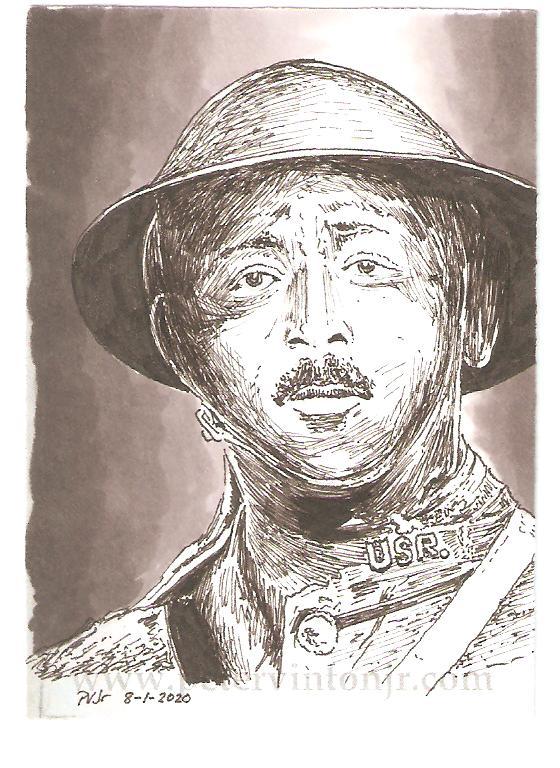
An ongoing illustrative history study
This piece originally posted 9/10/2020
Prelude | 32 | 33 | 34 | 35 | 36 | 37 | 38 | 39 | 40 | Email |
|---|
"I am herewith offering my services for the Army Medical Corps should there be need for a Negro Physician for that branch of Service."
Urbane F. Bass was born in Richmond, VA in 1880, and pursued his medical education at Virginia Union University. He later moved to Fredericksburg, intent on being the first African-American physician since Reconstruction to practice in that city. Despite the lack of admitting privileges given to black physicians by the local hospital, he established a private practice for black patients. When the U.S. formally entered the Great War (WWI) in in 1917, a nationwide draft would eventually include 400,000 African-Americans. Dr. Bass was one of 104 African-American physicians who volunteered --training was held at a special Medical Officers Training Camp for Colored Officers in Fort Des Moines. In 1918 Dr. Bass and his team were deployed to the front lines in France, with the 372d Infantry Regiment --even being issued French uniforms, helmets and weapons.
On Oct. 17, 1918, Bass was attending to wounded soldiers at a forward aid station, taking heavy fire. A shell exploded nearby and shrapnel severed both of his legs. Bass died before he could be taken from the field. For extraordinary heroism in action, Bass was (posthumously) awarded the Distinguished Service Cross, the first African-American to receive such. Following the war, his body was returned to the U.S. and now rests in "Officers' Row," near the entrance of Fredericksburg National Cemetery. He was the first African-American to be interred there.
Read more about how the Fredericksburg community is honoring Dr. Bass's legacy.
Next page - Lesson 37: Maggie Lena Walker